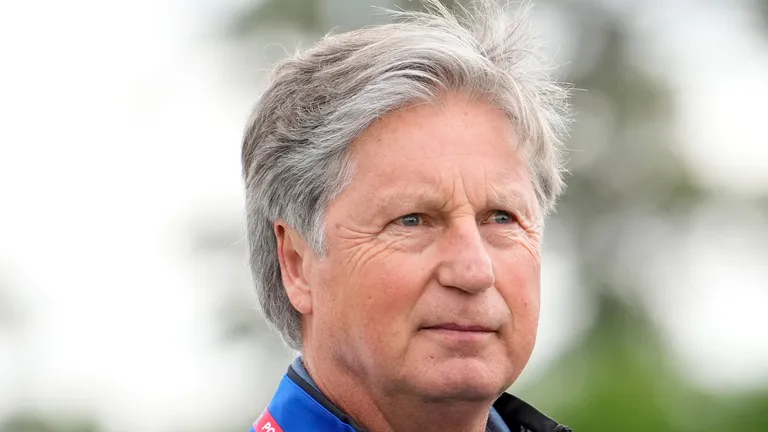Brandel Chamblee, known for stirring the pot, reignited an old Tiger Woods debate, despite Woods not playing that weekend. Once tagged as a “Tiger hater,” Chamblee’s recent stance contradicts this perception. Instead, he took Tiger’s side in a heated argument prompted by Rory McIlroy’s win at the Zurich Classic, a team event. McIlroy’s victory, credited as his 25th PGA Tour title, moved him ahead of Gary Player and Dustin Johnson on the all-time list. However, it wasn’t Chamblee who initially sparked the debate, but Gary Williams, another golf analyst, who highlighted that Woods, with 82 career PGA Tour titles, has none of the team variety.
Williams’ tweet suggesting that Woods might not be pleased with McIlroy’s count set off a flurry of responses, with Chamblee chiming in to support the argument. While some may dismiss team wins as inconsequential, Chamblee contends that Woods’ win at the 2000 World Cup with David Duval should be recognized. This would bump Woods’ tally to 83 PGA Tour victories, one more than the record he shares with Sam Snead.
Digging deeper into the matter, Chamblee points out that Snead’s tally includes wins in formats that differ from traditional stroke play events. Despite this disparity, these wins are counted towards Snead’s total. If Woods’ professional wins were treated similarly, his count would soar to 95, according to Chamblee’s analysis. This revelation highlights a discrepancy in how wins are recognized and raises questions about the fairness of the comparison between Woods and Snead.
Chamblee’s argument extends beyond mere numbers. He argues that Woods’ dominance in an era marked by stiff competition further solidifies his claim to the record. Woods’ impact on the game transcends statistics, with his influence felt across generations of players. Recognizing his team victories would not only bolster his numerical standing but also acknowledge his versatility and adaptability as a player.
Despite the controversy surrounding Woods’ win count, Chamblee sees the debate as an essential aspect of golf discourse. Without it, the sport would lose a vital source of intrigue and discussion. While the topic may divide opinions, it underscores the complexity of assessing greatness in golf and the nuances involved in comparing players across different eras.
In conclusion, Chamblee’s intervention reignites an ongoing debate about the criteria for counting PGA Tour victories. By challenging conventional wisdom and advocating for Woods’ team wins to be recognized, he prompts golf fans to reconsider their perceptions of greatness in the sport. Whether or not Woods’ tally should be adjusted remains a topic of heated debate, but one thing is certain: the conversation surrounding his legacy is far from over.
